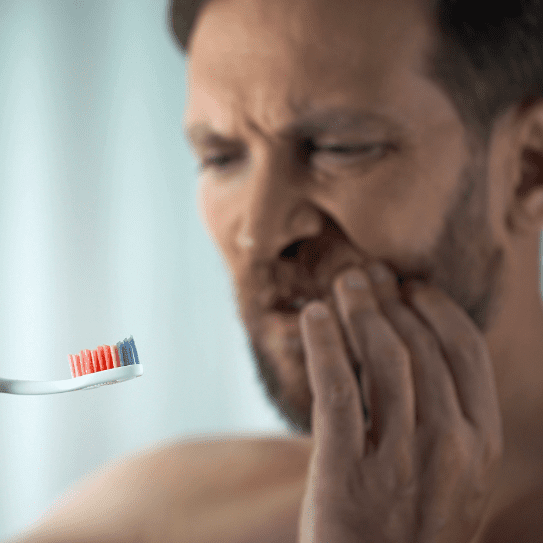Signs and Symptoms of Gum Disease
Periodontal disease, also known as gum disease, is the most common oral disease among American adults. It’s so common that there’s already a 50% chance you have it if you’re over 30.
The disease begins as gingivitis, a mild type of gum inflammation. The early stages of gingivitis are marked by bacteria, plaque buildup, and bleeding gums when brushing your teeth.
Gingivitis is also the mildest form of periodontal disease. If the condition develops, your teeth begin to loosen and eventually fall out. These acquired infections can spread to other organs of the body.
The good news is that gum disease is treatable. The best way to prevent it from developing is by regular brushing and flossing. Good oral hygiene helps remove the normal mouth bacteria and food particles that collect on the teeth.
The next best step is to see your dentist for regular biannual professional cleanings and checkups to prevent further – and potentially reverse – the beginning stages of the disease.
Let’s learn to recognize the signs of this condition so you can protect your smile.
What are the Warning Signs of Gum Disease?
Your gums protect your jaw and support your teeth. Healthy gums help secure your teeth in place and seal out harmful bacteria. Periodontal disease can quickly develop if you don’t brush and floss regularly.
The most common signs of gingivitis and gum disease are:
- Bleeding gums – Healthy gums don’t bleed, but periodontal disease can make them more sensitive. Bleeding gums while brushing or flossing may be a sign of the disease.
- Swollen gum line – Puffy gums are another visual cue that could indicate periodontal disease. When bacteria build up on your teeth, it infects and inflames surrounding gum tissue. Periodontal disease may make gums red, puffy, and tender.
- Receding gums – Inflammation causes the gum tissue to pull away from your teeth, revealing too much of your tooth roots.
- Halitosis – Chronic bad breath can be a sign of periodontal disease.
- Sensitive Teeth – Receding gums and other symptoms can make your teeth feel sensitive. Hot or cold foods or beverages may cause pain and sensitivity. You might also notice pain when biting or chewing.
- Loose teeth – Gum disease can cause teeth to loosen in their sockets. Loosened teeth can shift in your mouth, changing how your teeth fit together when you bite down and leading to permanent tooth loss.
What are the Causes of Gum Disease?
Brushing and flossing are not only for achieving fresh breath. Good at-home oral hygiene is the best way to remove harmful plaque and bacteria buildup. If left untreated, they cause the disease and potentially widespread infection.
The most common culprits of gum disease are:
- Smoking and chewing tobacco
- Significant hormonal changes (puberty, pregnancy, or menopause)
- Cancer, viruses, and diabetes
- Certain medications
- Nutritional Deficiencies
- Family History
- Crooked Teeth
Trusted Treatment for Gum Disease in Wichita, KS
Brushing, flossing, rinsing with mouthwash twice a day, and visiting Lana K. Anderson in Wichita, Kansas, for regular checkups are ideal for preventing gum disease. Oral health affects overall health, so keeping the mouth clean and healthy is essential for a healthy body.








